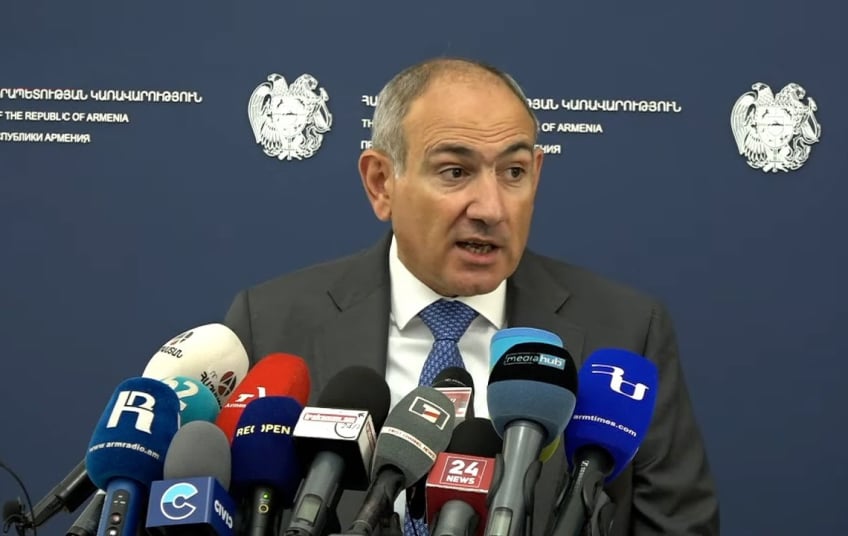The syndrome of intolerance toward dissent can gradually intensify and eventually transform into something even more dangerous, psychologically harder to overcome —tendencies toward authoritarianism. One inevitably arrives at this conclusion when observing the behavior of the person occupying the prime minister’s chair in Armenia, whose conduct perhaps warrants a separate study. Consider his statement: “I am the Government. No one in the Government can have an opinion that contradicts mine. If such people exist, let them submit their resignations right now and leave. If not, I will dismiss them myself.”
This remark came from Pashinyan during a briefing with journalists after the August 28 Government meeting. He became visibly irritated when asked about the “Electric Networks of Armenia” (ENA) CJSC dispute. The journalist wanted to know whether the Government intended to comply with the emergency ruling issued by a Stockholm arbitrator—fully aware that the ruling was legally binding and subject to enforcement. In response, Pashinyan declared, with baseless confidence, that the Armenian Government had won in arbitration. In reality, the Stockholm Arbitration ruling unequivocally required the Armenian Government to comply with the decision, namely, to return ENA to its rightful owner.
Pashinyan’s statement “I am the Government”—implying that all government decisions emanate from him alone—was likely inspired by the famous phrase “I am the state,” attributed to France’s King Louis XIV, an absolute monarch who built a powerful army and navy while pursuing expansionist policies across Europe. Yet, comparing Pashinyan with Louis XIV is hardly appropriate. Pashinyan, by nature, is prone to retreat rather than conquest. Building a strong army or expanding his country’s territory lies far beyond his capabilities. A more fitting comparison would be with Louis XV, author of the equally famous phrase “After me, the deluge.”
In the case of our “Louis,” imprisoning those who disobey or oppose him and exploiting his own people are much easier. Firing someone from their job for merely expressing a free opinion is the mildest of the evils. Consider Liparit Drmeyan, the head of the Office of the Representative on International Legal Matters in the prime minister’s staff. He contradicted the “boss” by insisting that the arbitration award must be enforced unconditionally and immediately. Mere hours after the briefing, he was dismissed. After all, Pashinyan had warned: “I am the Government. No one can have an opinion that contradicts mine.”
Read also
But, of course, the Government is not him. The Government is a collegial body founded on pluralism—at least, that is how the Constitution defines the mission of the executive branch, regardless of how much he tries to place himself above it. And this is nothing new. His dictatorial tendencies were evident as early as 2018, the year he came to power, when, at a September rally, he declared himself personally responsible for all arrests of public significance. In other words, he made no secret of his intention to “usurp” one of the judiciary’s most important functions.
Over the years, this “usurpation” became a persistent habit at the top of the power pyramid. Once all three branches of government had been effectively subdued, the reins of power fell into the hands of one man—Nikol Pashinyan. Today, with both audacity but also with brutal honesty, he claims to be the Government itself, while the rest are mere executors of his will. He grants power to whomever he pleases, concedes whatever he desires. In short, Nikol has taken off the mask, revealing the face of a dictator. The greatest tragedy is that this dictator now seeks to perpetuate himself for another five years. It is high time society reflects on this with clear and sober minds.




















































